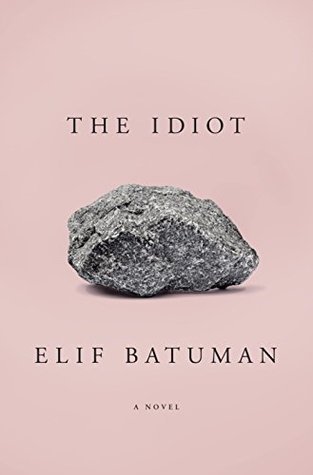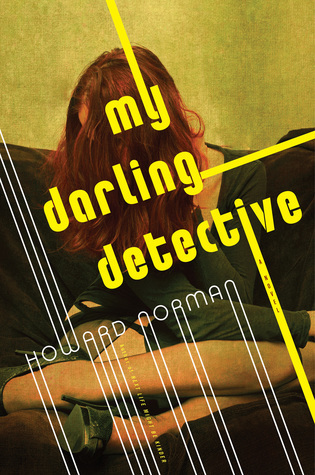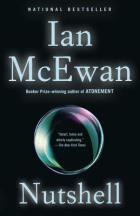Here are three enjoyable novels due out next month that I was lucky enough to read early. The first two are debuts, while the third is by an author I’ve had good luck with before. I’ve pulled 250-word extracts from my full reviews and hope you’ll be tempted by one or more of these.
Spaceman of Bohemia by Jaroslav Kalfař(Coming on March 7th from Little, Brown and Company [USA] and March 9th from Sceptre [UK])
 Call this a cross between Everything Is Illuminated (Jonathan Safran Foer) and The Book of Strange New Things (Michel Faber). In April 2018 Czech astronaut Jakub Procházka is launched to investigate cosmic dust storm “Chopra,” but realizes he can never escape his family history or the hazards of his own mind. Amid the drudgery of daily life onboard the JanHus1 space shuttle, he makes a friend: a giant, alien spider he names Hanuš. Jakub has the sense that Hanuš is sifting through his memories, drawing out the central tragedies that form his motivation for going to space, including the shame and persecution that resulted from his father being a Party loyalist and member of the Secret Police prior to the Velvet Revolution.
Call this a cross between Everything Is Illuminated (Jonathan Safran Foer) and The Book of Strange New Things (Michel Faber). In April 2018 Czech astronaut Jakub Procházka is launched to investigate cosmic dust storm “Chopra,” but realizes he can never escape his family history or the hazards of his own mind. Amid the drudgery of daily life onboard the JanHus1 space shuttle, he makes a friend: a giant, alien spider he names Hanuš. Jakub has the sense that Hanuš is sifting through his memories, drawing out the central tragedies that form his motivation for going to space, including the shame and persecution that resulted from his father being a Party loyalist and member of the Secret Police prior to the Velvet Revolution.
This debut novel is a terrific blend of the past and the futuristic, Earth and space. There is much to enjoy: Jakub’s sometimes baroque narrative voice (“What good am I, a thin purse of brittle bones and spoiling meat?”) – all the more impressive because Jaroslav Kalfař is in his late twenties and has only spoken English for about 13 years; the mixture of countryside rituals and the bustle of Prague; and the uncertainty about whether Jakub has a viable future, with or without his wife Lenka. The book goes downhill in Part Two and doesn’t quite pull everything together before its end. However, it’s still one of the best debuts I’ve encountered in recent years, and I’ll be eager to see what Kalfař will come up with next.
My rating: 
The Idiot by Elif Batuman
(Coming on March 14th from Penguin [USA] and June 1st from Jonathan Cape [UK])
 An odd but very funny anti-Bildungsroman. This is Selin Hanim’s account of her freshman year at Harvard (circa 1995) and the summer of European travel that follows. A daughter of Turkish immigrants, she wants to become a writer, but even as she minutely records every happening and thought she doubts the point of it. In Russian and linguistics classes, in interactions with her roommates and her Serbian friend Svetlana, and in her growing obsession with Ivan, a senior math major from Hungary, she includes a Knausgaardian amount of mundane detail yet always remains at an emotional distance from events. The tone is so very deadpan that you may never warm to Selin. However, it feels appropriate for what the novel is attempting: a commentary on the difficulty of having real, meaningful conversations when language breakdown is rife.
An odd but very funny anti-Bildungsroman. This is Selin Hanim’s account of her freshman year at Harvard (circa 1995) and the summer of European travel that follows. A daughter of Turkish immigrants, she wants to become a writer, but even as she minutely records every happening and thought she doubts the point of it. In Russian and linguistics classes, in interactions with her roommates and her Serbian friend Svetlana, and in her growing obsession with Ivan, a senior math major from Hungary, she includes a Knausgaardian amount of mundane detail yet always remains at an emotional distance from events. The tone is so very deadpan that you may never warm to Selin. However, it feels appropriate for what the novel is attempting: a commentary on the difficulty of having real, meaningful conversations when language breakdown is rife.
Once again Batuman has borrowed a Dostoevsky title (her 2010 memoir was called The Possessed). I suspect her debut novel is generally indebted to Eastern European literature in the randomness of the incidents and the way they are bluntly recounted rather than explained. This can be problematic for the story line: it feels like things keep happening that serve no purpose in the grander scheme. It’s as if Batuman is subverting the whole idea of a simple coming-of-age trajectory. At the same time, she convincingly captures what it’s like to be young and confused. This reminded me of my college and study abroad experience; that familiarity plus the off-the-wall humor kept me reading.
Sample lines:
(On a plane) “I opened the foil lid and looked at the American meal. I couldn’t tell what it was. The man in the seat ahead of me started tossing and turning. His pillow fell into my dessert. The pink whipped foam formed meaningful-looking patterns on the white fabric. I saw a bird—that meant travel.”
“Spiderwebs attached themselves, like long trails of agglutinative suffixes, onto our arms and faces.”
My rating: 
My Darling Detective by Howard Norman
(Coming on March 28th from Houghton Mifflin)
 When Jacob Rigolet’s mother Nora, former head of Halifax Free Library, throws ink on a photograph during an art auction in 1977, it sparks an unusual quest into his past. Jacob’s fiancee Martha Crauchet, the detective of the title, learns two startling facts from Nora’s police file: Jacob was born in the Halifax library; and Bernard Rigolet had been serving overseas for more than a year before his birth in 1945, so can’t be his father. Three years ago Nora’s obsession with World War II led to a breakdown she calls her “fall from grace”; she’s been confined to a rest home ever since. As Jacob gives up being an art buyer to attend library school, Martha gets involved in a cold case that involves his real father. The film noir atmosphere is enhanced by a hardboiled detective radio program he and Martha are hooked on: set in the year of Jacob’s birth, Detective Levy Detects keeps overlapping with real life.
When Jacob Rigolet’s mother Nora, former head of Halifax Free Library, throws ink on a photograph during an art auction in 1977, it sparks an unusual quest into his past. Jacob’s fiancee Martha Crauchet, the detective of the title, learns two startling facts from Nora’s police file: Jacob was born in the Halifax library; and Bernard Rigolet had been serving overseas for more than a year before his birth in 1945, so can’t be his father. Three years ago Nora’s obsession with World War II led to a breakdown she calls her “fall from grace”; she’s been confined to a rest home ever since. As Jacob gives up being an art buyer to attend library school, Martha gets involved in a cold case that involves his real father. The film noir atmosphere is enhanced by a hardboiled detective radio program he and Martha are hooked on: set in the year of Jacob’s birth, Detective Levy Detects keeps overlapping with real life.
This offbeat mystery reminded me of The World According to Garp. I could see it working as a low-budget indie movie or TV special. I loved how climactic things kept happening at the library, and enjoyed glimpses of bad borrower behavior: selling the library’s art books to a secondhand bookstore and a 105-year overdue loan found in someone’s attic. I have a suspicion this novel won’t linger long in my mind, but it was a fun weekend read. (Historical note: one character’s mother was killed in the Halifax Explosion.)
My rating: 
- Uncategorized






